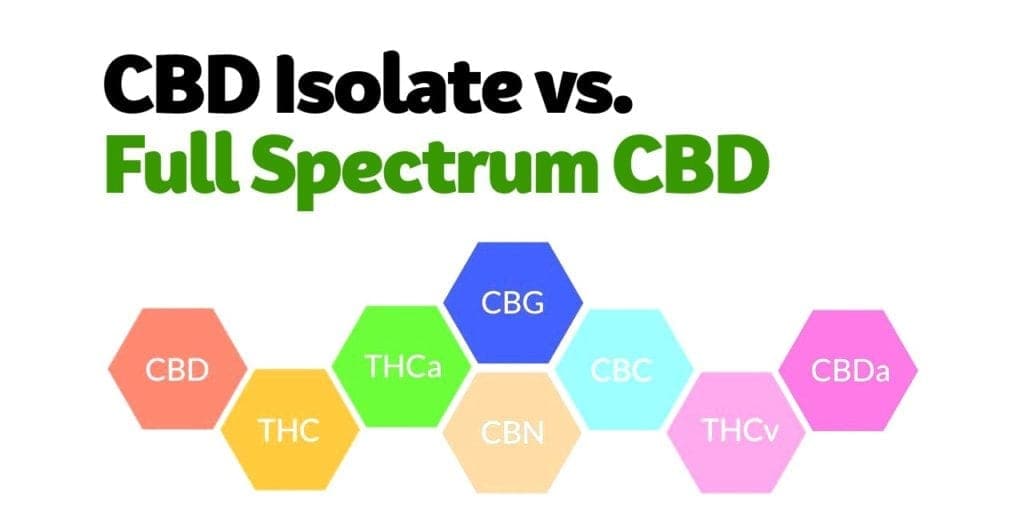While cannabidiol (CBD) products are slowly entering the French market, it is sometimes difficult to know which type of CBD has been used. Most commonly, two types of CBD are used: either full-spectrum CBD or CBD isolate.
You may have already seen the full spectrum or 99% CBD on bottles of CBD oil or e-liquid, but without really knowing the difference. Here are some explanations.
What is full spectrum CBD?
CBD full spectrum ( full spectrum CBD in our English neighbors) means that cannabidiol extract also contains other cannabinoids, CBN, CBC and CBG for example, and sometimes even of THC in legal proportions (less than 0, 2% in France).
The whole plant was used for extraction and all the active ingredients of cannabis were kept in the extract.
What is the point ? It has been shown that cannabinoids have more effects when they are together, an interaction called the surrounding effect . CBD is then “more efficient”.
What is CBD isolate?
The CBD isolate is, as its name suggests, pure CBD extraction, often above 99%, isolated from other cannabinoids. The CBD isolate is often in the form of crystallized powder. CBD Isolate Wholesale is available on many online retailers.
Isolating an active ingredient is a common approach in the pharmaceutical model, to maximize its effectiveness and the safety of the molecule. On the other hand, it does not take into account the different possible interactions between compounds of the plant.
What is the Best?
For a long time, research has been limited to studying CBD alone. The CBD isolate allows precise dosing, especially for people who make their own CBD products.
In a 2015 research study looking at the anti-inflammatory response of CBD in mice, Israeli scientists showed that full-spectrum CBD has more anti-inflammatory effects than pure CBD. Lisolat from CBD was effective at a precise dosage, while full spectrum CBD was effective in all cases.
“Healing was observed only when [pure] CBD was given at specific doses, whereas no effect was observed at smaller or higher doses. ”
Some people, however, tolerate little THC, even at legal doses, or can not afford to have traces of THC in the blood. In these cases, the CBD isolate is a good option.
CBD to treat Endometrial Cancer:
The cannabidiol (CBD ) and extracts rich in CBD could be a therapeutic option against endometrial cancer, according to a new study published by the Journal of Physiology and Biochemistry and published online by the National Institute of Health states -United.
“Among the different phtytocannabinoids, Δ9-tetrahydrocannabinol (THC) and cannabidiol (CBD) are the most promising therapeutic compounds” begins the study.
“Beyond the well-known palliative effects on cancer patients, cannabinoids have shown their ability to inhibit the growth of tumor cells in-vitro. Similarly, the main endocannabinoids, anandamide (AEA) and 2-arachidonoylglycerol (2-AG), induce death of tumor cells. ”
The purpose of this study was to characterize the cannabinoid elements and evaluate the effect of cannabinoids on the viability of endometrial cancer cells. Endometrial cancer, also called uterine cancer, affects the tissues of the uterus where implantation takes place.







